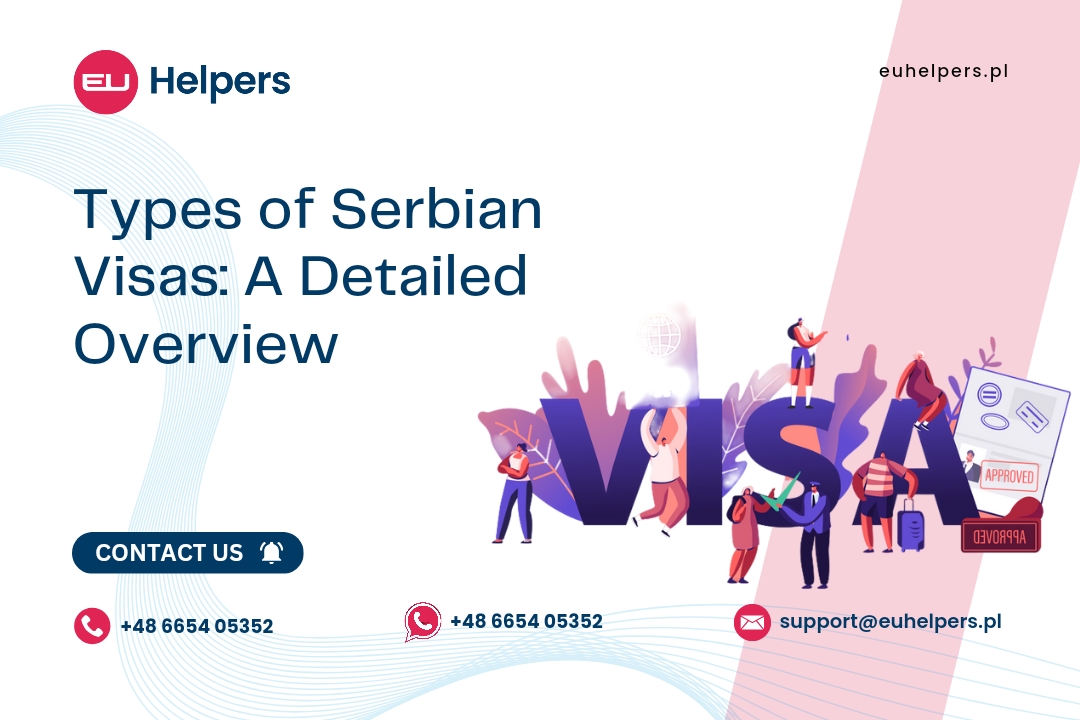Serbia offers various visa types tailored to meet the needs of travelers depending on the purpose and duration of their stay. Understanding these visa types is essential for ensuring a smooth and legally compliant visit to Serbia. Here is a detailed overview of the main types of visas available for those wishing to enter Serbia:
1. Short-Stay Visa (C Visa)
The short-stay visa, commonly known as the "C visa," is intended for those planning a brief visit to Serbia. This visa allows travelers to stay in the country for up to 90 days within a 180-day period. The C visa is versatile and can be issued for several purposes, including:
- Tourism: Visitors who wish to explore Serbia's rich cultural heritage, natural landscapes, and vibrant cities can apply for a C visa. This visa is ideal for those on holiday or visiting the country as tourists.
- Business: Individuals traveling to Serbia for business meetings, conferences, or other professional engagements can also apply for a short-stay visa. This facilitates business activities without requiring a long-term commitment to stay in the country.
- School Trips: Schools organizing educational trips to Serbia can apply for a C visa on behalf of their students. This type of visa is specifically designed to accommodate the needs of school groups traveling for educational purposes.
- Official and Political Meetings: Diplomats, government officials, and representatives of international organizations visiting Serbia for official meetings or political purposes can be issued a short-stay visa to fulfill their duties during their visit.
2. Long-Stay Visa (D Visa)
The long-stay visa, or "D visa," is designed for individuals who intend to remain in Serbia for an extended period. This visa permits a stay of up to one year and is generally issued for specific purposes, such as:
- Study: Students who have been accepted into educational institutions in Serbia, whether for university studies or specialized training programs, can apply for a D visa. This allows them to legally reside in Serbia while pursuing their studies.
- Family Reunion: Individuals who have close family members legally residing in Serbia may apply for a long-stay visa to join their family. This visa is often used by spouses, children, or parents who wish to reunite with their loved ones in Serbia.
- Work: Foreign nationals who have secured employment in Serbia can apply for a D visa, enabling them to live and work in the country. This visa is essential for professionals who need to stay in Serbia for an extended period due to their job.
- Humanitarian or Religious Activities: Individuals involved in humanitarian missions, charitable work, or religious activities may also apply for a long-stay visa. This visa is particularly relevant for members of non-governmental organizations (NGOs), religious leaders, and volunteers working on projects that require their prolonged presence in Serbia.
Understanding the different types of Serbian visas is crucial for ensuring a smooth and legal stay in the country. Whether you are visiting for a short period or planning to stay for an extended time, Serbia offers visas tailored to various needs, from tourism and business to education, family reunification, and humanitarian work. Before planning your trip, ensure that you apply for the appropriate visa type to meet the legal requirements of your stay in Serbia.

